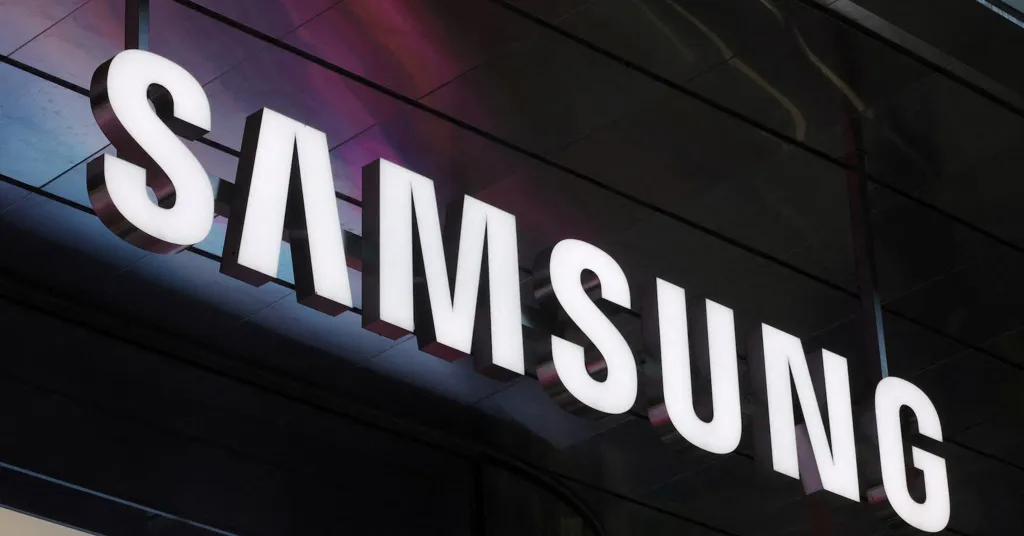SEOUL, July 31 (Reuters) - Samsung Electronics (005930.KS) said a trade deal that will see Washington charge 15% tariffs on imports from South Korea reduces uncertainty, as it forecast more major chip orders after signing a $16.5 billion deal with Elon Musk's Tesla (TSLA.O).
"Building on this milestone, we anticipate securing additional orders from large customers," Samsung Vice President Noh Mi-jung said of its struggling contract chipmaking business during an earnings conference call.
Samsung's new U.S. semiconductor factory in Texas, which is expected to make chips for Tesla (TSLA.O), is on track to begin production in 2026, she said.
The Texas project is central to Samsung Chairman Jay Y. Lee's strategy of expanding beyond its bread-and-butter memory chip business into high-end contract chip manufacturing, which is dominated by Taiwan's TSMC (2330.TW).
Noh's comments came after the company posted 4.7 trillion won ($3.37 billion) in operating profit for the April-June period, its weakest earnings in six quarters. That was roughly in line with an earlier estimate that had disappointed investors.
The South Korean tech giant forecast a gradual second-half recovery for its overall business, without providing further details.
Second-quarter operating profit at its chip division plunged 94% from a year earlier, it said, hurt by delays in supplying the latest AI chips to Nvidia (NVDA.O) and U.S. export curbs on advanced semiconductor sales to China.
Samsung's deal with Tesla this week came just days ahead of a much-anticipated tariff agreement with Washington announced by President Donald Trump on Wednesday that for now eases tensions with a top-10 U.S. trading partner and key Asian ally.
FOCUS ON AI CHIPS
Prolonged weakness in Samsung's performance has deepened investor concerns over the South Korean company's ability to catch up with smaller rivals like SK Hynix (000660.KS) in developing high-bandwidth memory (HBM) chips used in AI data centres sold to customers including Nvidia.
Last October, Samsung said it was making progress on a major deal to supply HBM3E chips to an unidentified customer that analysts said was Nvidia.
Samsung warned on Thursday that the supply of HBM3E chips has been growing faster than demand, which would affect pricing.
The tech giant said it has provided samples of its next-generation HBM4 chips to customers, with a plan to supply them next year. The customers are expected to include Nvidia, analysts said.
Samsung said on Thursday it expected the industry environment would improve in the second half, driven by AI chip demand due to continued investments by major cloud service providers.
Meta Platforms (META.O) and Microsoft (MSFT.O) on Wednesday pointed to strong AI chip demand and major investments in data centres in their earnings announcements.
But Samsung said there were also some concerns about slowing global growth due to an uncertain trade environment and geopolitical risks.
"We believe that the uncertainty has been reduced through the conclusion of negotiations between the United States and South Korea," Samsung Chief Financial Officer Park Soon-cheol said after Trump announced the trade deal.
Park said Samsung was also closely monitoring a U.S. national security probe into imports of semiconductors and electronics such as smartphones, tablets and PCs, which he said could have a significant impact on its businesses.
Samsung's second-quarter revenue rose 0.7% to 74.6 trillion won, in line with its earlier estimate of 74 trillion won.
Its chip division posted a profit of 400 billion won during the quarter, down from 6.5 trillion won a year earlier, marking the first time in six quarters that the figure has dropped below the 1 trillion won mark.
Samsung said in a statement that inventory value adjustments to memory chips and one-off costs from the impact of U.S. export restrictions on sales to China on its contract chipmaking business lowered the division's profit.
Shares of Samsung were down 1.8% in early afternoon trade, underperforming the benchmark KOSPI (.KS11) index, which was 0.5% lower.
(($1 = 1,393.4100 won))
Reporting by Heekyong Yang and Joyce Lee and Hyunjoo Jin; Editing by Anne Marie Roantree and Jamie Freed
